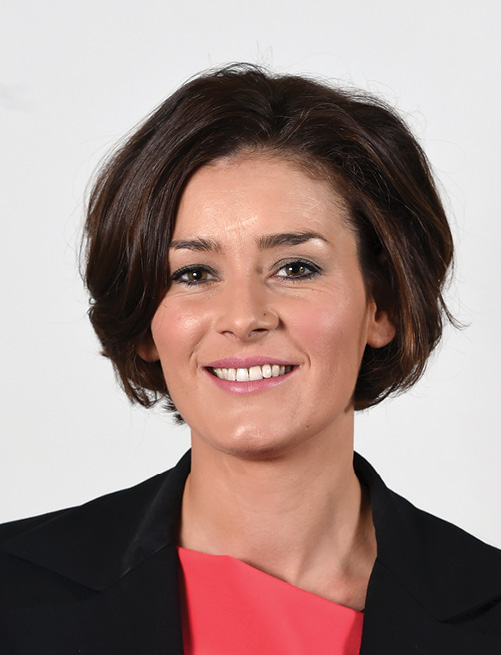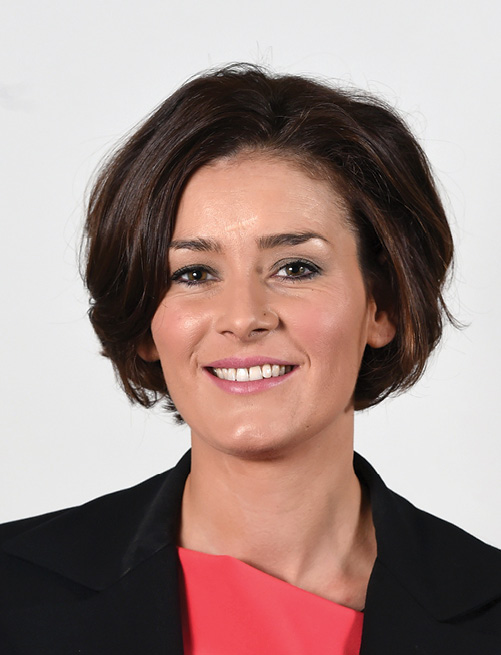Political Platform


Kate O’Connell TD
Kate O’Connell has been a Fine Gael TD for Dublin Bay South since 2016. A pharmacist by trade, she was a Dublin City councillor from 2014 to 2016.
How did your political career begin?
I first became involved in Dublin when I joined the Terenure branch of Fine Gael in 2011. I was raised in a very political family in Westmeath and I had been a member there all my life, until I transferred my membership to Dublin. In 2013 I was approached to run in the local elections the following year. I ran in the Rathgar/Rathmines part of the Dublin Bay South constituency and was successful, taking my seat just before 6pm on the day of the count. From then on, I worked as a local representative until I took a seat in the Dáil for Fine Gael in the 2016 General Election.
What are your most notable achievements to date?
Firstly, I took the first seat in the country for Fine Gael in 2014, unusual for a first-time candidate and on what was nationally a bad day for the party, with many seat losses.
Secondly, taking part the arguments of the anti-fluoride campaigners on Dublin City Council, who tried to use anecdotal and conspiratorial arguments against the safe and beneficial fluoridation of water. The debate went viral and (at last count) had been viewed over a quarter of a million times. Water has remained fluoridated, which was a great win for wider public health.
Furthermore, campaigning, representing and marching with parents of children who were marginalised from local schools due to the “baptism barrier”. Now, the Minister has been moved to remove the preference for majority religion children over minority faith, or non-faith, children.
Finally, expanding the availability of emergency contraception to women of limited means, meaning that there is now no more of a financial barrier to them getting it than there is for any other medicine.
What is unique about representing Dublin Bay South?
Dublin Bay South is unique in its demography. More than a third of the people living in DBS are non-Catholic and there is huge religious diversity. It also has one of the youngest populations, with a median age of 35.5 years. It has the lowest number of children per family of anywhere in the country, averaging 1.17 children per family. It’s also one of the most expensive places to buy or rent a house, and it faces quite significant challenges around supply, some of which it is trying to address at the minute by developing thousands of dwellings in the Dockland area.
I love being a public representative for Dublin Bay South because of the diversity of the people I get to represent. You get calls from young and old, the well-off and the badly-off, original Dubs and people from rural backgrounds like myself. It’s a huge honour. I try to do the best I can for everyone who calls and you have to remember that once you get elected, you represent all the people of the area, including those who did and did not vote for you.
What are your priorities going forward?
I know it’s a big one, but I really want to try to help fix the health service. So many things would be better in Ireland if we just had a proper, functional health service, for providers and for users. Improving services right from neonatal to end of life care, as well as at all levels of the HSE will continue to be my focus. So far, we have the National Maternity Strategy that requires continued care to deliver it across the country, as well as the challenges we face in addressing the needs of an ageing population. I’ll be working hard to help people understand how important it is to repeal the Eighth Amendment, how serious declining vaccination rates are for public health, and how necessary it is to be mature about our legislative provisions going forward.
Whether [a woman] is single or married, 16 or 46, the burden of responsibility for caring and rearing a child lies with her, so she is best qualified and best placed to make the decision to carry a pregnancy to term.
Why is choice important when it comes to pregnancy and abortion?
Bodily autonomy is a fundamental human right. People make the counter-argument all the time that the right to life of the unborn trumps that, but without the woman bearing the child, there would be no life to begin with. Becoming a mother is a lifelong commitment and responsibility; that can totally overwhelm and terrify a woman. Whether she is single or married, 16 or 46, the burden of responsibility for caring and rearing a child lies with her, so she is best qualified and best placed to make the decision to carry a pregnancy to term. If you take away that choice from her, you leave desperate women in a situation where they can make desperate decisions, endangering their health and their lives.
By providing women with choice about if or when they become a parent you end up in a far better situation where women only have the children they want and can afford, and society then benefits due to the all-round positive parental experience that comes from that. I find it so troubling that some people condemn women for having children and claiming benefits to help support them. Those same people have campaigned against the provision of contraception, against the morning after pill being made available on the medical card and against ‘abortion on demand’, as they callously call it. We already have abortion on demand in Ireland; if you can afford to hop on a plane to the UK.
I think once people are deemed capable of making their own decisions then they should be able to make those choices for themselves.
What are your interests outside of the political sphere?
I have a lot of interests outside of my work, in particular I enjoy cooking and travelling as well as the arts and architecture. I loved home economics in school, and when I was at university in the UK I ran the kitchen in a restaurant at the weekend to pay for college. I pay a lot of attention to design and I love watching architecture programmes like Grand Designs.
When I was younger, I trained as a soprano and enjoyed singing and preforming, but my performances are limited to singing to my kids now and teaching them the songs my father used to sing to us when I was a child.
I am also working on improving my Irish language skills, I’m really enjoying increasing my knowledge and my comfort level when speaking Irish.





